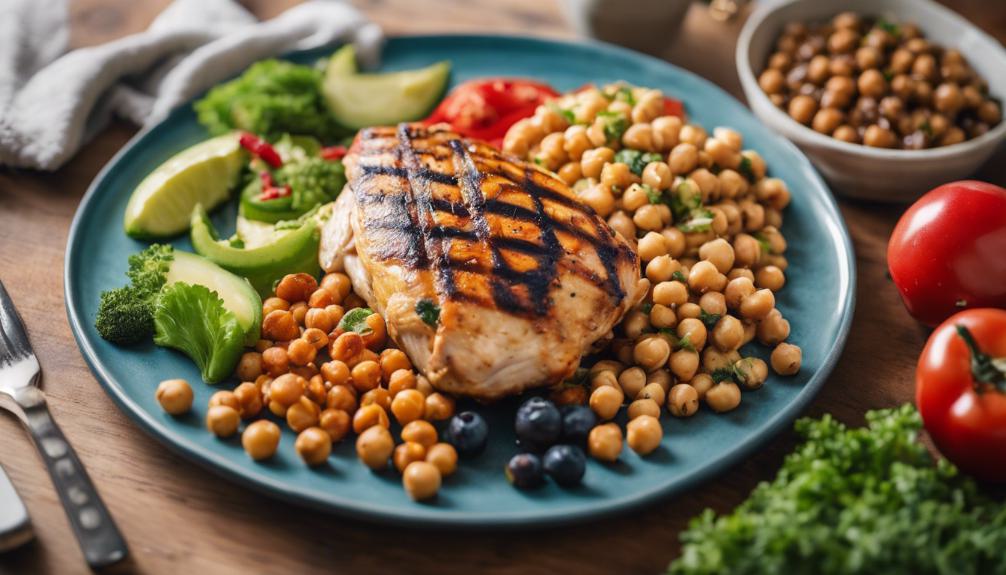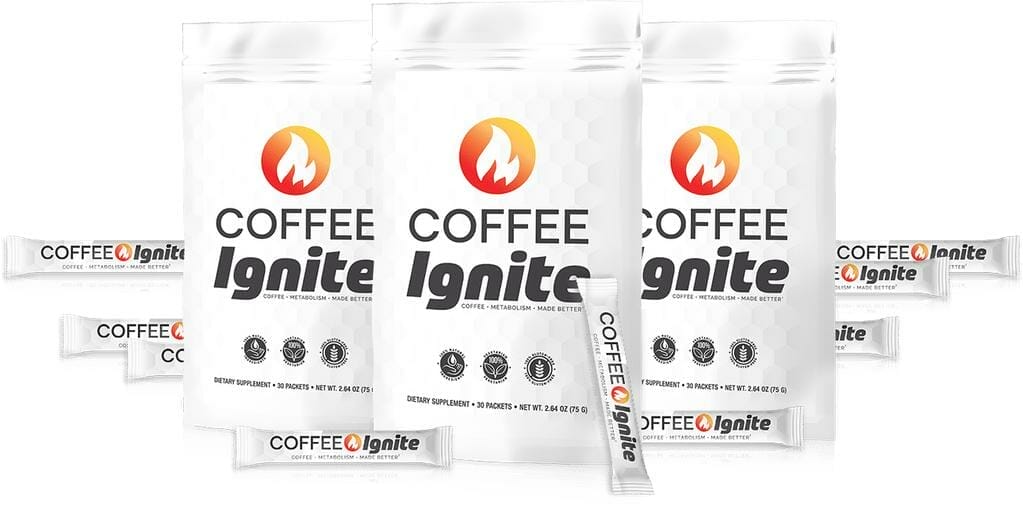To lose weight without a calorie deficit, focus on strategic dietary choices like high-protein foods and low-calorie options. Engage in mindful eating habits to prevent overeating by paying attention to taste and texture. Make small lifestyle adjustments, prioritize quality sleep, and manage stress levels. Master portion control with tools like the plate method and your fist size for guidance. Incorporate protein-rich foods like chicken and tofu for satiety and muscle maintenance. These alternative approaches can lead to effective weight loss without calorie counting. Discover more ways to achieve your goals through holistic lifestyle changes.
Mindful Eating Habits
To develop mindful eating habits, focus on engaging fully with your senses during meals. Pay attention to the sensations of eating, including taste, texture, and smell. By avoiding distractions, you can make better food choices, practice portion control, and distinguish between emotional eating triggers and genuine hunger cues.
This approach enhances meal satisfaction, reduces overeating, and fosters a healthier relationship with food and body.
Dietary Choices for Weight Loss
Considering your goal of losing weight, making strategic dietary choices can greatly impact your progress and overall well-being.
Opt for high-protein foods like chicken and tofu to boost metabolism and reduce hunger.
Choose low-calorie density foods such as vegetables and fruits to feel full with fewer calories.
Incorporate fiber-rich options like whole grains and nuts to support digestion and weight management effectively.
Lifestyle Adjustments for Health

Making lifestyle adjustments is key to achieving peak health and well-being.
Quality sleep and stress management are essential for hormonal balance and weight management.
Mindful eating helps distinguish emotional from real hunger, promoting healthier food choices.
Simple habits like chewing slowly prevent overeating and support weight loss.
Optimizing hormones, reducing hunger levels, and boosting metabolism are fundamental strategies for weight loss without a calorie deficit.
Small changes in daily routines lead to significant improvements in weight management and overall health.
Portion Control Strategies
Start enhancing your portion control skills by implementing practical strategies that can help you manage your food intake effectively.
- Utilize the plate method to control portions effectively.
- Measure meals using your fist as a guide for protein and carbs.
- Avoid overeating by controlling portion sizes, such as not eating straight from the bag.
Protein-Rich Foods Incorporation

Incorporate protein-rich foods into your daily meals to enhance feelings of fullness and support muscle mass maintenance during weight loss. Foods like chicken, fish, and tofu can help reduce calorie intake while promoting fat loss.
Fiber-Rich Meal Preparation
Enhance your meal preparation by including fiber-rich foods, which can boost satiety and aid in weight loss.
- Increase fiber intake for longer-lasting fullness.
- Choose whole foods to support weight management.
- Listen to satiety signals for better food choices.
Hydration and Weight Management

Proper hydration is essential in managing your weight effectively. Dehydration can often be mistaken for hunger, leading to unnecessary calorie intake.
Make sure to drink enough water daily to support your metabolism and overall health.
Water Retention Effects
Hydrating sufficiently plays an essential role in managing water retention and promoting healthy weight management.
Effects of Water Retention:
- Proper hydration helps flush out toxins, reducing bloating.
- Dehydration can lead to excess water retention and weight gain.
- Maintaining a good water balance aids in regulating sodium levels, minimizing puffiness.
Hydration and Metabolism
Remaining well-hydrated is essential for maintaining a healthy metabolism and effectively managing your weight. Dehydration can cause confusion between hunger and thirst, impacting calorie intake and metabolism.
Sufficient hydration is linked to a lower risk of obesity and chronic diseases. Aim to drink at least half your body weight in ounces of water daily to support metabolic functions and aid in weight control, influencing various bodily processes important for weight management.
Fluid Balance and Weight
Maintaining a healthy fluid balance is essential for effective weight management and overall well-being. Proper hydration is vital to prevent dehydration, which can confuse thirst with hunger, impacting appetite control.
Adequate fluid intake is linked to lower risks of obesity and chronic diseases, supporting metabolism and digestion. Aim to drink at least half your body weight in ounces of water daily to aid in weight management.
Sleep Quality and Weight Loss

Prioritizing adequate sleep is essential for optimizing weight loss efforts, as it directly influences hunger hormones and stress levels. Chronic sleep deprivation can lead to confusion between hunger and thirst, affecting calorie intake. Aim for at least seven hours of sleep per night to support weight management.
Increasing sleep duration is linked to consuming fewer calories, aiding in weight loss by promoting hormonal balance and better appetite control.
Stress Management for Natural Weight Loss
To support natural weight loss, incorporating stress management techniques like deep breathing for stress relief and mindful eating practices can be highly beneficial. These methods can help regulate hormone levels, reduce emotional eating, and improve overall well-being.
Breathing for Stress Relief
Breathing techniques for stress relief play an essential role in supporting natural weight loss by reducing cortisol levels and promoting relaxation responses. Deep breathing can aid in stress reduction, while diaphragmatic breathing boosts metabolism and energy production.
Mindful breathing helps curb emotional eating triggers, fostering healthier food choices. Incorporating these practices daily can enhance overall well-being, mental clarity, and weight loss efforts.
- Deep breathing: Reduces stress levels
- Diaphragmatic breathing: Improves metabolism
- Mindful breathing: Reduces emotional eating triggers
Mindful Eating Practices
Engage in mindful eating practices to effectively manage stress and support natural weight loss. By focusing on the sensory experience of eating, you can promote satisfaction and awareness of hunger cues. This approach helps reduce emotional eating, leading to healthier food choices.
Stay in the present moment during meals to regulate food intake and prevent overeating. Mindful techniques like chewing slowly enhance digestion and nutrient absorption, aiding in weight loss.
Frequently Asked Questions
Is There a Way to Lose Weight Without a Calorie Deficit?
Yes, you can lose weight without a calorie deficit by focusing on specific foods like protein and low-calorie density options. Cutting carbs, managing hormones, and mindful eating can all aid weight loss without strict calorie counting.
What Can I Do Instead of Counting Calories?
Focus on eating whole, nutritious foods, incorporating protein and fiber for satiety, practicing mindful eating by listening to your body, controlling portions with visual cues, and staying active and well-rested to support weight loss without calorie counting.
How Do You Lose Weight if You Dont Want to Count Calories?
Focus on whole, minimally processed foods. Prioritize protein and fiber-rich options. Opt for nutrient-dense choices. Listen to your body’s cues. Practice mindful eating. Support weight loss without strict calorie counting. You can achieve your goals this way.
How Can I Eat at Maintenance Without Counting Calories?
To eat at maintenance without counting calories, focus on whole, nutrient-dense foods. Use portion control with visual cues like the plate method. Listen to your body’s cues, practice mindful eating, and stay active for weight maintenance.
Conclusion
To sum up, losing weight without a calorie deficit is possible through mindful eating habits, dietary choices, lifestyle adjustments, portion control, protein and fiber-rich foods, hydration, quality sleep, and stress management.
By incorporating these alternative approaches into your daily routine, you can achieve your weight loss goals while maintaining a healthy lifestyle. Remember, small changes can make a big difference in your journey towards a healthier you.
Stay committed and consistent for lasting results.








Leave a Reply
You must be logged in to post a comment.